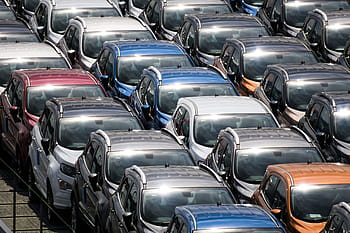Bombay HC directs UBER and similar transport aggregators to apply for licence as required under Motor Vehicles Act by March 16; Criticizes Maharashtra Govt. for non-compliance of statutory requisite

Read Order: Savina R. Crasto vs. Union of India & Others
Pankaj Bajpai
Mumbai, March 9, 2022: While observing that despite new statutory provisions having been brought into force in 2019 by amending Section 93 of the Motor Vehicles Act, 1988 and the guidelines having been framed in November 2020, the Maharashtra Government has permitted an aggregator like UBER to operate in Maharashtra without insisting for compliance of the statutory requisite, the Bombay High Court took note of the fact that making an order restraining UBER, which has not yet obtained the statutory license, to operate would work to the immense prejudice and detriment of the passengers who avail of the services provided by it.
Therefore instead of restraining UBER from operating in the State of Maharashtra, a Division Bench of Chief Justice Dipankar Datta and Justice Vinay Joshi granted an opportunity to UBER as well as other unlicensed aggregators to apply for licence as required by section 93(1) of the Act before the competent authority to be empowered by the State Government to issue license under Motor Vehicles Act.
Going by the background of the case, the Central Government has framed the Motor Vehicle Aggregator Guidelines, 2020 and in a meeting held on March 05, 2021 chaired by the Joint Secretary (Transport), Ministry of Road Transport & Highways, UBER raised certain objections to those Guidelines. Since no final decision was taken on such objections, the UBER has not yet applied for license.
It is, however, the stand of the Union of India (second respondent) that until the rules framed by it are put into operation, the aggregators like UBER would be governed by the 2020 Guidelines in terms of the first proviso to subsection (1) of section 93 of the Act and that such aggregators are required to act in accordance.
Opposing the same, the counsel appearing on behalf of UBER contended that so long the Ministry of Road Transport & Highways takes a decision on the objections raised in the meeting held in 2021, there could be no compulsion for UBER to obtain a license of the nature referred to u/s 93(1) of the Act, more particularly when sub-section (1) refers to conditions that could be prescribed by the State Government under the Rules which are yet to be finalized.
After considering the submissions, the High Court found that the rules framed are still at the draft stage but till such time the said draft rules are finalized for being complied with, the 2020 Guidelines framed by the Central Government would hold the field and any person willing to operate as an aggregator, must follow the regulatory framework brought about by such guidelines.
Also, the 2020 Guidelines are subsequent to the order dated June 30, 2017 and such order, which records only a statement of the Additional Government Pleader, cannot have the effect of stultifying the operation of statutory guidelines framed by the Central Government, added the Court.
Accordingly, the High Court observed that once it is the statutory mandate u/s 93(1) of the Motor Vehicles Act, 1988 that no person shall engage himself as an aggregator unless a license is obtained, it is absolutely inappropriate for the State of Maharashtra (second respondent) to allow UBER (third respondent) to continue as transport aggregator without he/it obtaining such a license.
Hence, the High Court directed the Transport Department of the State Government to issue appropriate notification in the Official Gazette forthwith and not later than March 9, 2022 empowering each and every Regional Transport Authority in the State of Maharashtra to act as the Licencing Authority for grant of license u/s 93(1) of the Act.
In the event the concerned aggregator/prospective licensee agrees to comply with the conditions laid down in the 2020 Guidelines, issuance of license in its favour shall not be unnecessarily delayed, added the Court.
Sign up for our weekly newsletter to stay up to date on our product, events featured blog, special offer and all of the exciting things that take place here at Legitquest.




Add a Comment